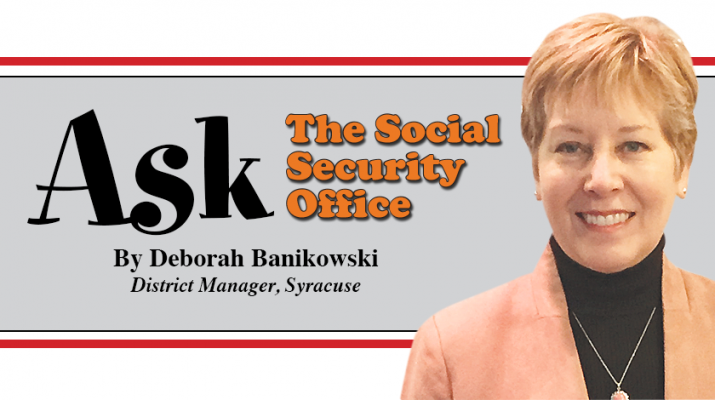Service members can also receive Social Security in addition to military retirement benefits
By Deborah Banikowski
On Memorial Day, we honor the soldiers and service members who have given their lives for our nation. Social Security respects the heroism and courage of our military service members, and we remember those who have given their lives in defense of freedom. Part of how we honor service members is the way we provide Social Security benefits.
The unexpected loss of a family member is a difficult experience for anyone. Social Security helps by providing benefits to protect service members’ dependents. Widows, widowers and their dependent children may be eligible for Social Security survivors benefits. You can learn more about Social Security survivors benefits at www.socialsecurity.gov/survivors.
It’s also important to recognize those service members who are still with us, especially those who have been wounded. Just as they served us, we have the obligation to serve them. Social Security has benefits to assist veterans when an injury prevents them from returning to active duty.
Wounded military service members can also receive expedited processing of their Social Security disability claims. For example, Social Security will provide expedited processing of disability claims filed by veterans who have a U.S. Department of Veterans Affairs (VA) compensation rating of 100 percent permanent and total (P&T). Depending on the situation, some family members of military personnel, including dependent children and, in some cases, spouses, may be eligible to receive benefits. You can get answers to commonly asked questions and find useful information about the application process at www.socialsecurity.gov/woundedwarriors.
Service members can also receive Social Security in addition to military retirement benefits. The good news is that your military retirement benefit does not reduce your Social Security retirement benefit. Learn more about Social Security retirement benefits at www.socialsecurity.gov/retirement. You may also want to visit the Military Service page of our Retirement Planner, available at www.socialsecurity.gov/planners/retire/veterans.html.
Service members are also eligible for Medicare at age 65. If you have health insurance from the VA or under the TRICARE or CHAMPVA programs, your health benefits may change, or end, when you become eligible for Medicare. Learn more about Medicare benefits at www.socialsecurity.gov/medicare.
In acknowledgment of those who died for our country, those who served, and those who serve today, we at Social Security honor and thank you.
Q&A
Q: I got an email that says it’s from Social Security, but I’m not so sure. They want me to reply with my Social Security number, date of birth, and mother’s maiden name for “verification.” Did it really come from Social Security?
A: No. Social Security will not send you an email asking you to share your personal information, such as your Social Security number, date of birth, or other private information. Beware of such scams — they’re after your information so they can use it for their own benefit. When in doubt, or if you have any questions about correspondence you receive from Social Security, contact your local Social Security office or call us at 1-800-772-1213 (TTY 1-800- 325-0778) to see whether we really need any information from you.
Q: I suspect that someone I know is collecting Social Security disability benefits when they shouldn’t be. What is the best way for me to report fraud?
A: You can report fraud online at http://oig.ssa.gov/report or call the Social Security Fraud Hotline at 1-800-269-0271. Social Security has zero tolerance for fraud and uses many proven tactics to prevent fraud, waste, and abuse. Our Office of the Inspector General is relentless in its pursuit of people who conceal work activity while receiving disability benefits. We investigate and seek prosecution for people who receive benefits for a child or children who aren’t under their care, or who fail to notify Social Security of the death of a beneficiary and continue to receive and cash checks of the deceased.
We also depend on you to help stop fraud.

